Last Updated 5/24/2022
To meet the promise of our mission, Chewonki strives to be a diverse, equitable, and inclusive organization. Our legacy of thoughtful self-reflection and purposeful change guides our efforts to create a place where all participants and staff can flourish. We are committed to:
- Promoting the principles of social and environmental justice*;
- Cultivating a leadership culture that fosters the best practices of this work;
- Building our financial strength to ensure the durability of this work;
- Attracting and enrolling students and campers who reflect our nation’s diversity;
- Attracting and retaining staff who reflect our nation’s diversity;
- Providing relevant, rigorous professional development;
- Designing a campus that is responsive to many needs;
- Evaluating our progress on an ongoing basis; and
- Collaborating whenever possible with peer institutions to share knowledge and resources.
For more information about our diversity, equity & inclusion statement, including a background and overview of how this statement was created, please read this supporting document.
* Chewonki’s definition of environmental justice is informed by the U.S. Environmental Protection Agency’s definition of the term, which is “the fair treatment and meaningful involvement of all people regardless of race, color, national origin, or income with respect to the development, implementation and enforcement of environmental laws, regulations and policies.”
A Roadmap to a Better Future
We acknowledge that Chewonki operates throughout Maine on the ancestral lands of the Wabanaki and our main campus is on the land of the Wawenock, who were part of the Eastern Abenaki people. We also acknowledge that our organization has not always been inclusive, equitable, or diverse in the ways we envision for the future.
We are engaged in a sustained effort to transform Chewonki into a more diverse, equitable, inclusive, and anti-racist organization, one that is committed to addressing the historical and entrenched inequities that prevent us from reaching our full potential as a place of teaching and learning.
In 2018, our board of trustees approved a formal Diversity, Equity, and Inclusion Statement to guide this effort. We used a combination of community input, internal audits, outside consultants, staff training, and working groups to identify work in the following impact areas.
Our roadmap contains initiatives that we believe will improve our institution as a whole. These ongoing efforts will provide a better experience for our community of participants, families, alumni, staff, faculty, trustees, advisors, and partner organizations.
The pursuit of diversity, equity, and inclusion is not a singular goal unto itself but a standard through which we choose to view every area of our organization’s work. This roadmap is intended to be a living document that we will continue to update as we conclude initiatives, begin new ones, and improve our understanding of the needs of the community.
We hope that a transparent view of these efforts, combined with support and feedback from all stakeholders, will help us find new and creative ways to address the historical and entrenched problems of racism, discrimination, and inequity that face all of us. We invite you to share your feedback and comments with us through the form at the bottom of the page.
Our Key Impact Areas:
Recent changes:
- We established our first merit-based scholarship, the Maine Youth Environmental Leaders Scholarship, to increase applications from Maine students.
- We expanded remote admissions events to expand access to a broader range of interested parties outside our historic geographic range.
- We added the position of associate director of admissions to provide more personalized outreach and support to families in the application process for school programs.
- We added a second Waypoint staff member to connect with families and mentor students as we grow the program in the Bath area.
- We established BIPoC-specific admissions events in partnership with alumni to meet new families.
- We established language support and translation services for registration and admissions documents.
- We have recently renewed our relationship with several access organizations that serve youth that are underrepresented, including Rainier Scholars and Prep for Prep.
- Our recruitment presentations now include explicit language about the ways in which we support students with a BIPoC mentorship program and affinity groups.
Our work in progress includes:
- Implement changes to our recruiting plan to reach new audiences, including:
- Commit financial aid to specific schools with student populations of groups that are predominantly underrepresented.
- Explore ways to partner with organizations such as Fresh Air Fund, Outdoor Afro, Changemakers, Seeds of Peace, Latino Outdoors, & others.
- Engage alumni ambassadors to bring a broader range of perspectives and racial identities to our school presentations and recruiting events.
Recent changes:
- We established a no-fee application process for all Chewonki programs.
- We promoted the availability of existing fee waivers for the third-party financial aid application.
- We created an endowment growth plan to increase financial sustainability and long-term program affordability.
- We established partnerships with other foundations in Maine (Elmina B. Sewall, Lerner, Quimby, Onion, Betterment Fund) to provide Chewonki programming in local school districts.
- In 2021, we began a wrap-around financial support plan for Maine Coast Semester participants (i.e. clothing, equipment, and travel) with plans to expand to other programs.
Our work in progress includes:
- Research and evaluate alternate tuition models including FIT (Family Individualized Tuition) to begin in the fall of 2023.
Recent changes:
- We revised the overall Camp Chewonki program structure to be more explicitly inclusive of the gender spectrum by naming non-binary participants in the program description language.
- We revised the curriculum in Maine Coast Semester’s English course–Literature and the Land, so that students read and “wrestle” with a diverse collection of writers and perspectives as they explore both their relationship to place and their sense of self.
- We revised the curriculum in Maine Coast Semester’s Honors United States History course to explore the nation’s history from multiple perspectives with a particular emphasis given to historically underrepresented narratives.
- Reviewed and updated the Farm and Food Systems curriculum for all programs with the following goals: spend more time discussing indigenous food systems, use honest language (ex. colonizers as opposed to settlers or explorers) with all ages, and center the stories of many types of farms and farmers in our lessons- all with a consistent awareness of White Supremacy Culture. This work is also ongoing.
Our work in progress includes:
- Integrate an acknowledgment of land and water, and our relationship with both, into regular practices for teaching, events, training, and meetings, with an understanding that this is just one piece of a larger process that builds reciprocity and relationship with our Indigenous neighbors.
- We continue to refine Maine Coast Semester’s weekly school meeting framework to explicitly explore social identities and community engagement. It is planned and facilitated by semester students with support and guidance from semester school teachers.
Recent changes:
- We established staff & student affinity groups.
- We updated our style manual to include gender pronouns.
- We created a monthly summary and staff meeting report from our DEI committee to offer brief updates and engage the community in some of our collective work/conversations.
- We increased transparency, offered more accessible language, and clarified the rights and responsibilities of all participants and staff with new organization-wide guidelines including Essentials Eligibility Criteria, Participant Behavior Agreements, our Non-Discrimination Policy, and our Privacy Policy.
- We updated our branding guidelines to include diversity, equity, and inclusion principles.
- We annually review DEI vocabulary and update our style manual and publications.
- We added multi-language support on our websites.
Our work in progress includes:
- Build a series of onboarding workshops relative to our DEI work that incorporate and discuss shared vocabulary, identity work, tips, tricks, and tools for race talk, and the tenants of white supremacy culture.
- Conduct a DEI-focused audit of all publications and branded material, and create a schedule for updating items that don’t meet our standards.
- Increase our focus on inclusive storytelling and provide a broader range of subjects and people in our publications.
- Revisit the framing and narrative of our collective connection to place, people, and Chewonki as an organization. A formal activity has been created for all staff to examine the intersections of Indigenous and colonialist history (past and present) on Chewonki Neck, the change in landscape and water over time, and the journey of the institution since its inception. This takes place over a 2 hour, small group, self-guided tour of 3 places on the peninsula, with historical content and prompts for deep reflection.
Recent changes:
- We added new seasonal camp facilities to grow our overnight camp and include girls and non-binary participants on Chewonki Neck.
- We completed renovations of bathroom facilities in two main buildings to create individual, all-gender, private spaces.
- Purchased an off-campus property (former Inn) to increase housing capacity and improve the quality of housing for educators.
Our work in progress includes:
- Apply a design standard to all new buildings and renovation projects to provide gender-inclusive spaces.
- Improve accessibility (ADA) with each new building and renovation project.
- Increase our investment in information technology and campus networks to better support remote and hybrid work, making employment more accessible to a range of candidates.
- Build and renovate our on-campus housing as part of a multi-year effort guided by our master plan, to recruit more candidates for teaching positions, including those from underrepresented groups, and better retain them through multiple life stages.
- Establish a written process for assigning on-campus residences, offices, and activity spaces that recognizes resource limitations and prioritizes equity.
- Through workshops and training, build awareness within programs and departments to examine and push back against cultural and structural ableism.
- We continue to support and engage in initiatives that give the Wabanaki tribes free access to land and water across Maine, including Chewonki-owned spaces such as Debsconeag Lake Camps and coastal islands.
Recent changes:
- We engaged Elevate Health, an outside consulting firm, to assess our health care services and provide recommendations.
- We increased staff hours and team size.
- We hired a full-time mental health services coordinator and retained a BIPoC-identifying clinical counselor. Chewonki has retained support, consultation, and ongoing partnership with a BIPoC Mental Health Provider. Dr. Tayibah Bemiah is a Licensed Professional Counselor who identifies as a Black Female and has extensive experience working in education.
- We hired a director of health services.
- Our expanded health team now works closely with program leaders to provide wellness and health education to participants.
- We completed a renovation of all Health and Wellness Center spaces.
Our work in progress includes:
- Write a strategic plan for Health and Wellness at Chewonki to implement recommendations from Elevate Health.
- Design and build an improved Health and Wellness Center to expand the capacity to more comprehensively serve Chewonki participants and staff.
- Write and ratify a health and wellness vision statement that aligns with our mission and DEI statement.
- Train staff to use the “Stress Continuum” framework as a wellness and risk management tool.
- Implement proactive social-emotional learning (SEL) curriculum for students by the mental health services coordinator.
- Partner with a health and wellness curriculum specialist to support the development and delivery of health education in programs.
Recent changes:
- We initiated ongoing networking with peer institutions to inform and share our DEI work. Examples include staff participation in initiatives with Maine Summer Camps, Semester Schools Network, and Environmental Living and Learning for Maine Students. Chewonki supports staff time in these collaborative spaces beyond our particular programs and internal efforts.
- We created a new staff cohort program to onboard employees, build collegial connections, and create a stronger sense of belonging.
- We added multiple training modules for hiring teams that explore the spectrum of the hiring process, examine cognitive errors and bias, and allow for more inclusive and equitable hiring practices.
- We implemented ongoing DEI-focused professional development training programs and workshops for all staff, in partnership with OUTMaine and Maine Wabanaki Reach.
Our work in progress includes:
- Actively seek new recruiting venues and practices and examine internal structures and systems to increase the racial diversity of our staff and faculty.
- Update our communication, hiring, and management processes to support the recruitment, onboarding, and retention of employees from groups that are underrepresented.
- Establish and articulate an equitable and transparent approach to employee compensation.
- Contract work with Strength Perspective; educators, facilitators, and strategic change partners, to continue training and development of staff.
Recent changes:
- We hired anti-racism/organizational development consultants for 18-months of staff training and train-the-trainer sessions around DEI topics, and ongoing work toward an anti-racist culture.
- We created a new Organizational Development staff team, led by the Senior Vice President, which is inclusive of DEI Initiatives, Staff Development and Support, and Human Resources.
- We strengthened our staff-led DEI Committee through clarification of goals and terms, and by deliberately rotating staff members onto the committee roster.
- We created a formal review process for DEI-related constituent concerns.
- We created a Professional Development/Onboarding/Wellness Task Force to research and recommend improvements in these areas.
- We implemented a fully updated and comprehensive Employee Handbook.
- We established a managers group to foster trust and collaboration at the managerial level and provide training and content relative to supervisory work and roles.
Our work in progress includes:
- Implement a consistent and comprehensive onboarding process that reflects the core of our mission and DEI statements.
- Review and edit all position descriptions and postings with a lens toward DEI, and with consistent language that reflects our commitment to ongoing work as an institution.
- Continue to develop and implement a best practice approach to hiring for diversity, equity, and inclusion.
- Foster a leadership culture that prioritizes diversity, equity, and inclusion in discussion and decision-making.
- Update all policies, protocols, and employee handbooks to reflect current best practices with a DEI lens.
- Develop and implement a current best practice approach to staff evaluation and annual reviews.
- Continue working with Essex Consulting to assess and recommend improvements to structures, systems, and policies throughout the organization, including supervision, support, and feedback.
Recent changes:
- We charged the Board Development and Governance Committee with accountability for DEI work at the board level.
- Chewonki Board and Staff representatives recently completed First Light, a two-year-long deep learning experience for Maine conservation leaders, facilitated in partnership with tribal representatives and the Wabanaki Alliance. The program aims to build strong relationships between Maine Tribes and conservation organizations, which manage 23% of Maine’s acreage.
- Our entire staff and board of trustees recently completed a two-year cycle of anti-racism training with Martha Haakmat of Haakmat Consulting and Alissa Schwartz of Solid Fire Consulting. Haakmat and Schwartz specialize in organizational development within a DEI framework. Through group training, workshops, and individual coaching, they helped us examine implicit bias, structural racism, anti-racist vocabulary, white supremacy culture, and intervention strategies.
Our work in progress includes:
- Continue to diversify our slate of Trustees and Advisors and consider new ways of achieving that goal.
- Created a comprehensive process that supports broad and multi-year plans for cultivating new board members.
- We have implemented training and development for our board to foster an equitable and anti-racist leadership culture among Trustees and Advisors; next step is to create a regular series of workshops and orientation sessions to keep the learning active and ongoing.
- Review and reconsider bylaws and practices to be more inclusive of all current and potential Trustees and Advisors.
- Incorporate and coordinate DEI work in each board committee with clear goals and priorities.
- Consider how to connect the learning and experiences of First Light participants with the rest of the organization.
Recent changes:
- We created a Black Indigenous and People of Color (BIPoC) alumni and friends group, meeting two times a year.
- Maine Coast Semester’s Black Indigenous and People of Color (BIPoC) Virtual Mentorship Program is in its second year, with six students participating in 2021 and seven in 2022, along with six alumni mentors. This program makes space for self-identified students of color to find solidarity and support with one another and with alumni who are near-peers and also identify as PoC. Inspired by student and alumni feedback, it provides an outlet for processing the experience of being at a predominantly white institution.
- We created a naming policy that ensures our building and site names are place-based instead of donor-centric.
Our work in progress includes:
- Create and publish our participation fundraising goals.
- Track and report on race and gender identity trends at Chewonki.
- Review and evaluate all place and building names with a DEI lens, guided by the naming policy.
- Continue to raise funds to further support DEI-specific goals such as health and wellness, wrap-around support, financial aid, DEI training, equitable and accessible facilities, and professional development.
Our work in progress includes:
- We supported LD1626, a bill that addresses the inherent sovereignty of Maine Tribes and aims to restore the same rights, privileges, and immunities as all other 570 federally-recognized tribes across the country.
- Chewonki collaborates with other learning centers to make Outdoor School experiences accessible to all middle school students in Maine.
- Participate in the effort to create a memorial and annual observance of James Weldon Johnson, racial justice activist and the lyricist of the Black National Anthem, in Wiscasset, where he died in 1938. In 2021, The State of Maine Legislature passed LD1444 to designate June 17 as James Weldon Johnson Day.
Feedback:
We welcome your thoughts and ideas about our DEI Roadmap and other ways we can work to improve Chewonki.
Related:
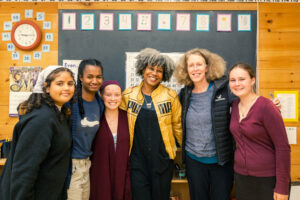
Majora Inspiration

Watch: BIPOC Mentorship Program Panel Discussion

Meet a Mentor: Jhovaé Irving
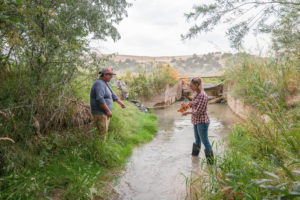
The Cross-Disciplinary Future of Land Stewardship?
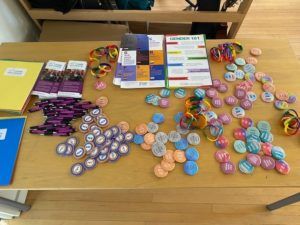
Building Skills to Support LGBTQ+ Youth
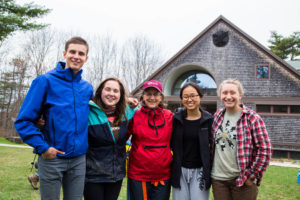
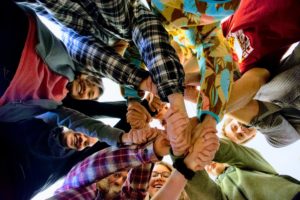
Intervening Against Hate and for Community




